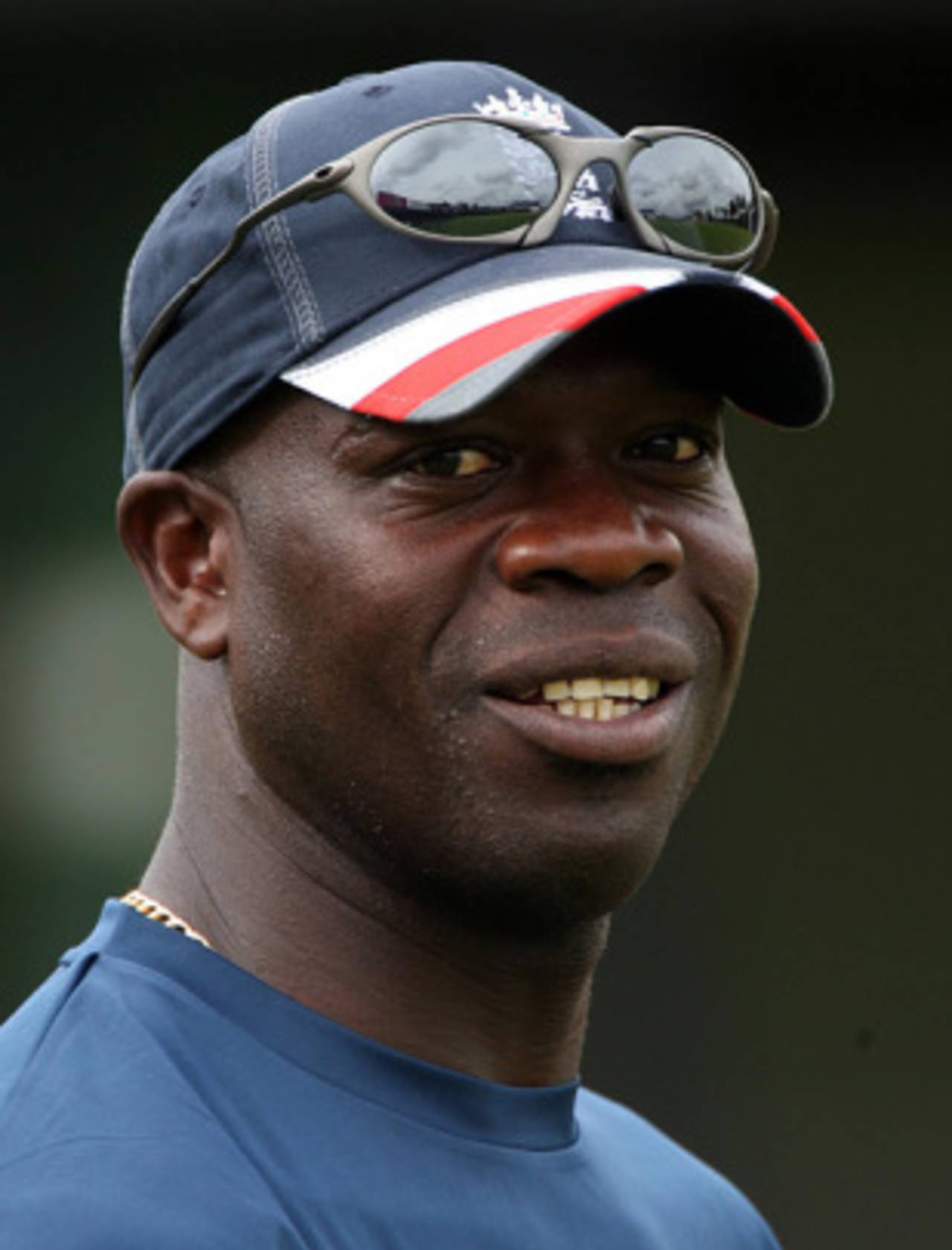Here's to Gibson
It's good to see a West Indian at the helm of this once-great side
Tanya Aldred
10-Feb-2010

Gibson: a touch of Midas • Getty Images
If you grew up in nylon sheets, wearing flares, craving those whistling lollipops they sold at the chemist and wishing you could have ice-magic at your birthday party, just one team was king in your formative years. The team of Garner, Marshall, Richards and Lloyd. A formidable blitzkrieg of men in white who dominated on the field, who intimidated with their spirit and physicality and who swaggered to victory after victory, victories that felt political. Against England the series record from 1 January 1980 to 31 December 1989 reads West Indies win 1-0, 2-0, 5-0, 5-0 and 4-0.
As individuals they were quite brilliant; as a group of 11 on a cricket field they were terrifying. And for an 11-year-old the sight of those bouncers crashing into helmets and felling players with added blood was a bit of a guilty thrill - something akin to grown men fighting but shown on live television and with accompanying commentary. On the other hand the cricket community was so alarmed by this domination and the on-field aggression that went with it that they changed the laws on short-pitched bowling.
Vivian Richards had a mission to prove the greatness of the black man. I think you could say he succeeded. He would later be named one of five Wisden cricketers of the 20th century. Malcolm Marshall was simply one of the best fast bowlers in history. Roger Harper would pluck a ball from the sky like a ripe pear from a overhanging branch. Larry Gomes, considered one of the weakest links, averaged only just under 40 and made six centuries against Australia. Jeff Dujon was an attacking wicketkeeper-batsman before such a thing was a popular concept. As Dujon later said, they played for respect, and they had respect.
So engrained was this image of West Indies cricket that even during the last decade of sad decline my automatic reaction on hearing about the team was to think of a side with the might of Clive Lloyd's. In fact, the point at which the downward trajectory of West Indies crossed with the upward trajectory of England was, although thrilling, a kind of tragedy - how could this proud collection of islands with their conveyor belt of talent be beaten by England, recipients of so many thrashings during the 1980s?
Even allowing for the current obsession with all things Twenty20, it would be quite a leap of faith to imply that your average punter at the Rose Bowl will transfer his allegiance to the Queen's Park Oval during the off season on the strength of a shared moniker and a clutch of familiar players
The answers lay far and wide: failure to plan for the future led to lack of success on the field, which led to discipline problems, pay disputes, a miserable World Cup, revolving-door captains and coaches, obsession with Twenty20, Sir Allen Stanford, a leaching of young sporting talent to the USA. When you add a dose of Chris Gayle arrogance into the mix, having anything to do with West Indies cricket does not seem a particularly enticing prospect.
And yet. When Ottis Gibson was offered the chance to take over as chief coach last month, he jumped at the opportunity. The first West Indian since Harper to hold the post will be more than just the team coach. He will have the chance to oversee development nearly, if not quite, from the cradle to the grave.
What a job. What a challenge. But the joy is that Gibson wanted it. That, in his words, he couldn't say no; that things hadn't got so bad that the job had become a poisoned chalice. It offers something that the safe England fast-bowling-coach job he has been doing since 2007, and at which he had carved out a role for himself in the manner of Troy Cooley, can't. It offers scope to transform a region's cricket. To make visiting players scared to look into the eyes of a man wearing the maroon cap again. Not many people get a chance to reinvigorate a country's backbone.
Gibson does seem to bring a touch of Midas to the game - particularly in the latter years, with Durham as player coach and with England, where he coaxed bowlers like Jimmy Anderson and Stuart Broad during the 2009 Ashes win and the recent series in South Africa. His new challenge starts against Zimbabwe at home next month - about as soft a start as he could hope for. I hope he does well. There is something wonderful about a West Indies team in full cry. It will be worth waiting for.
Tanya Aldred lives in Manchester. She writes occasionally for the Guardian